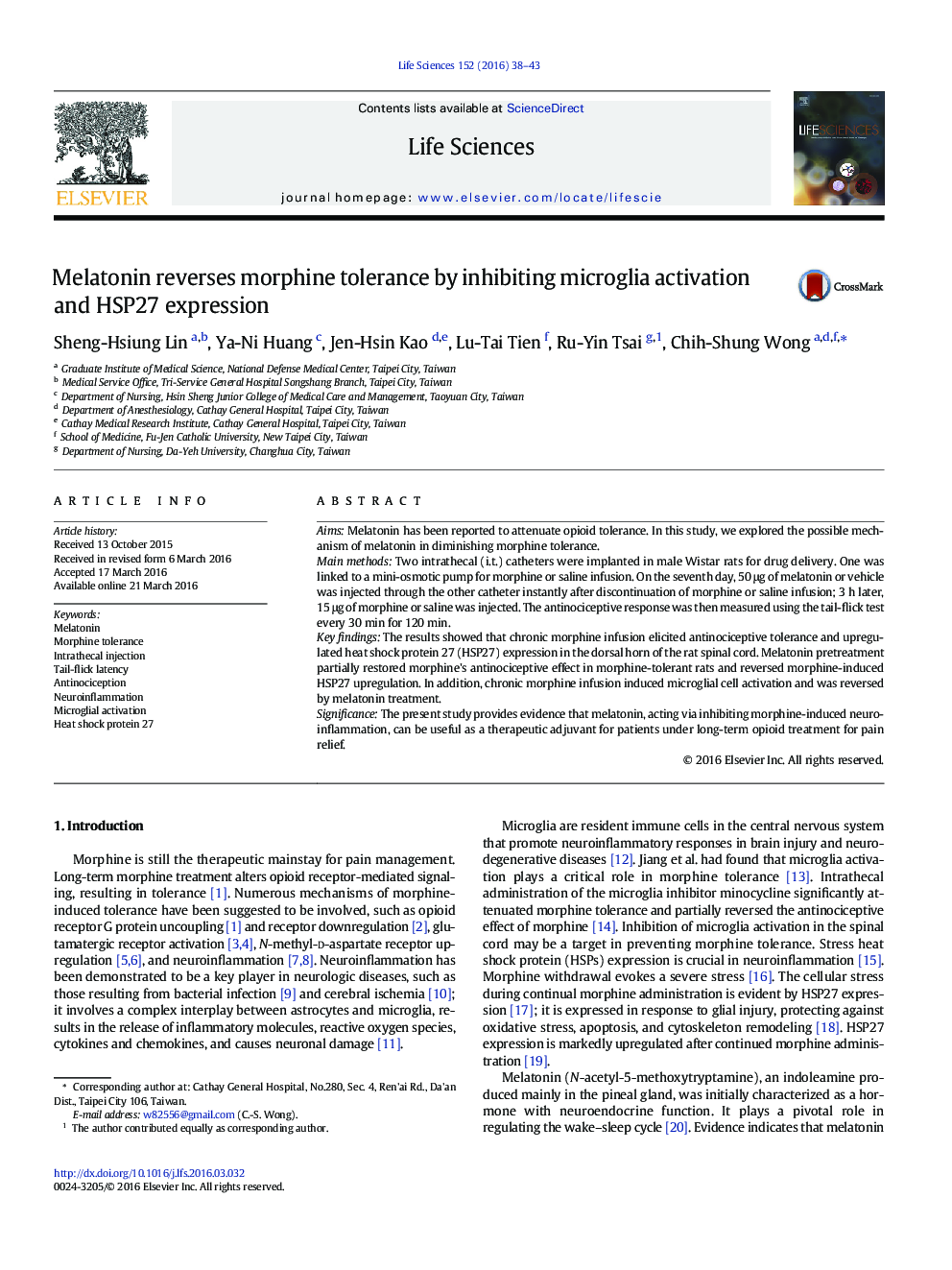| Article ID | Journal | Published Year | Pages | File Type |
|---|---|---|---|---|
| 2550493 | Life Sciences | 2016 | 6 Pages |
AimsMelatonin has been reported to attenuate opioid tolerance. In this study, we explored the possible mechanism of melatonin in diminishing morphine tolerance.Main methodsTwo intrathecal (i.t.) catheters were implanted in male Wistar rats for drug delivery. One was linked to a mini-osmotic pump for morphine or saline infusion. On the seventh day, 50 μg of melatonin or vehicle was injected through the other catheter instantly after discontinuation of morphine or saline infusion; 3 h later, 15 μg of morphine or saline was injected. The antinociceptive response was then measured using the tail-flick test every 30 min for 120 min.Key findingsThe results showed that chronic morphine infusion elicited antinociceptive tolerance and upregulated heat shock protein 27 (HSP27) expression in the dorsal horn of the rat spinal cord. Melatonin pretreatment partially restored morphine's antinociceptive effect in morphine-tolerant rats and reversed morphine-induced HSP27 upregulation. In addition, chronic morphine infusion induced microglial cell activation and was reversed by melatonin treatment.SignificanceThe present study provides evidence that melatonin, acting via inhibiting morphine-induced neuroinflammation, can be useful as a therapeutic adjuvant for patients under long-term opioid treatment for pain relief.
